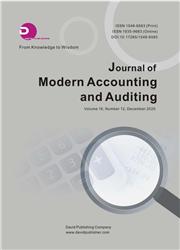Ecological Footprint Tax for the Development of Local Agribusiness
引用次数: 0
Abstract
The concept of ecological footprint tax (EFT) can be developed to cover the whole economy, but as a first experimental step, this paper suggests to introduce it in agriculture and food industry. The EFT is expected to mitigate two of the greatest anxieties of people in developed and semi-developed world: (rural) unemployment and climate change. The proposed arctan relation between the ecological footprint of products and the tax to be paid would result in a fairer allocation of tax charges (rich big-consumers having to pay much higher tax than low-polluter average people), assure sustainability for both the ecosystem and local economy (the tax charge itself depending first of all on the distance a product is to be shipped to the customer), and allow a healthier diet (local production, reaching the customers within much shorter time period than imports, not having to be stuffed with preservatives).生态足迹税与地方农业综合企业发展
生态足迹税的概念可以发展到覆盖整个经济,但作为第一个实验步骤,本文建议将其引入农业和食品工业。预计欧洲自由贸易联盟将缓解发达国家和半发达国家人民的两大焦虑:(农村)失业和气候变化。产品的生态足迹和所需缴纳的税款之间拟议的arctan关系将导致更公平的税收分配(富裕的大消费者必须比低污染的普通人缴纳更高的税),确保生态系统和当地经济的可持续性(税收本身首先取决于产品运往客户的距离),并允许更健康的饮食(当地生产,在比进口更短的时间内到达客户手中,不必塞满防腐剂)。
本文章由计算机程序翻译,如有差异,请以英文原文为准。
求助全文
约1分钟内获得全文
求助全文

 求助内容:
求助内容: 应助结果提醒方式:
应助结果提醒方式:


